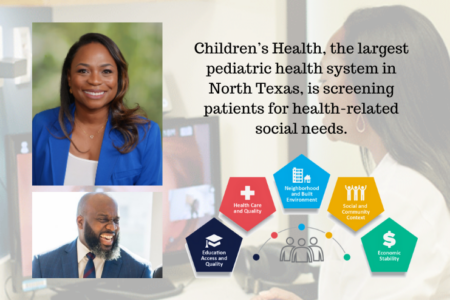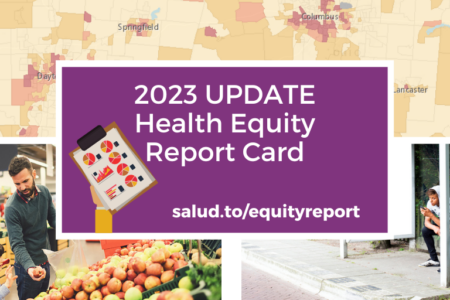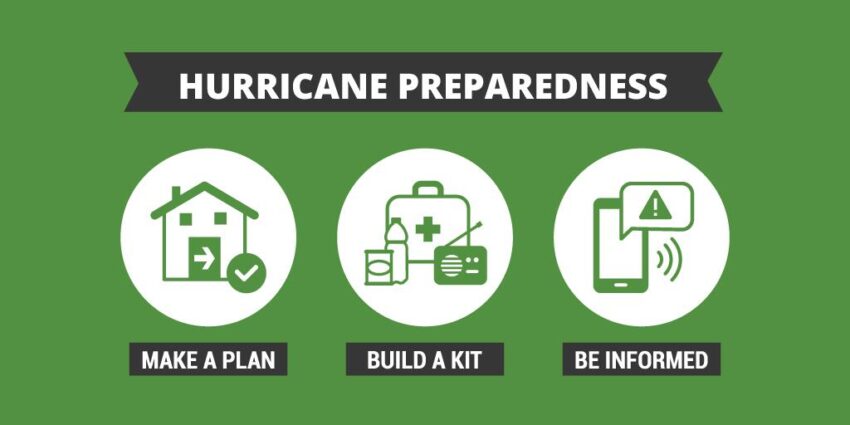
Share On Social!
Hurricanes are one of mother nature’s most dangerous forces, causing flooding, heavy rainfall, high winds, and even tornados.
Some hurricanes, including Hurricane Harvey (2017), Hurricane Katrina (2005), and Hurricane Sandy (2012) are infamous for destroying communities and entire cities, leaving many survivors without homes or possessions.
Because hurricanes can be so destructive, it’s important to prepare in case one hits your area.
Latinos, here’s everything you need to know about hurricane safety.
When is Hurricane Season?
Hurricane season varies depending on where you live in the United States.
The hurricane season for the Eastern Pacific region, including California (40.2% Latino), lasts from May 15 – November 30.
The Atlantic hurricane season, including Florida (26.8% Latino) and Texas (40.2% Latino), lasts from June 1 – November 30.
How Can I Prepare for a Hurricane?
Before a disaster strikes, you should do several things:
- Prepare an emergency plan that considers the needs of your family, including those with disabilities and pets.
- Know your risk for flooding and prepare an evacuation plan to keep everyone safe if you must leave your home.
- Build a basic disaster supplies kit of food, water, medications, cell phone chargers, batteries, flashlights, and other essentials to last for several days. In the age of COVID-19, your disaster supplies kit should also include masks and personal sanitation products. You may keep your kit in a backpack, so it is easy to grab if you need to evacuate.
- Stay up to date on approaching hurricanes by downloading the Federal Emergency Management Agency (FEMA) app to receive news and alerts by the National Weather Service.
- Check with neighbors and seniors in your neighborhood who may need additional help preparing for a hurricane or evacuating.
- Prepare and protect essential financial, medical, and insurance documents that can help your family recover from a hurricane.
- Prepare your home to withstand hurricanes by referring to the Homeowner’s Handbook to Prepare for Coastal Natural Hazards available in both English and Spanish.
How Do Hurricanes Affect Latinos?
Latinos and low-income families often suffer more from natural disasters because they tend to live in areas that are at a high risk of flooding, according to a study at the University of Arizona.
These groups may be attracted to flood-risk areas because of cheaper housing costs.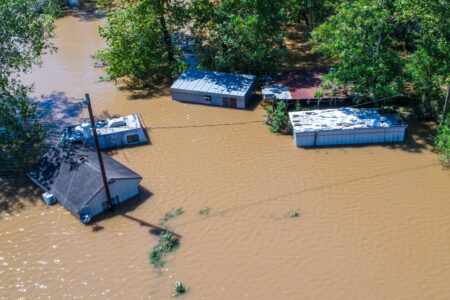
“You look back historically at how these places developed and usually the higher lands were developed first, leaving more marginal lands to the people who could not afford to live in the more prized areas,” Eric Tate, an associate professor of geographical and sustainability sciences at the University of Iowa, told S&P Global Market Intelligence.
However, these same groups also struggle to prepare for and recover from hurricanes due to a systemic lack of resources. These include little extra money for disaster supplies and home repair, and unreliable transportation for evacuation.
“Not only do their neighborhoods flood more, but also their housing quality is not as good, so mitigation on-site isn’t as strong. And then they don’t have the resources to recover,” Bill Fulton, director of Rice University’s Kinder Institute for Urban Research told S&P Global Market Intelligence.
In fact, studies show that the impact of natural disasters on lower-income neighborhoods are more severe and long lasting than on upper-income neighborhoods, according to a case study of flooding in Austin, Texas.
The same study noted that natural disasters can exacerbate poverty, and even lead to housing abandonment, especially in low-income and minority neighborhoods.
Latino Hurricane Safety Challenges
Latinos also face cultural and political challenges when it comes to hurricane safety.
“Latino populations are large, family-oriented, and expecting them to evacuate their homes and communities with their risk of being separated, it poses a big problem. Also, we need to keep in mind that undocumented individuals or those of illegal status will not seek assistance in fear of being exposed,” Emily Jones, the Public Information Officer for Robeson County, North Carolina, told Yale Climate Connections.
Additionally, language barriers can threaten Latino safety before, during, and after hurricanes.
“Language barriers can profoundly impact the effectiveness of planning and preparedness, communication during the hurricane event, as well as emergency response, relief and recovery efforts in the aftermath of a storm,” according to a University of West Florida study.
More Spanish resources for hurricane preparedness are becoming available, like these:
- Ready.gov en Español
- FEMA en Español
- Florida International University and National Hurricane Center en Español
However, communication in multiple languages during hurricanes still needs improvement.
Officials such as Jones are pushing for change by providing Spanish-speaking Latinos with resources to make sure they get the help they need.
“It’s an approach that will be even more critical as the US Latino population grows and climate change brings stronger and more dangerous storms,” writes Eileen Mignoni of Yale Climate Connections.
Resources in Spanish are also needed for the hurricane recovery process.
Low-income individuals, such as Latinos, are already less likely to take advantage of post-disaster assistance programs. Language barriers can worsen these statistics, further lessening the chance of hurricane recovery and exacerbating poverty.
How Can We Help Latinos Better Prepare For/Recover from Hurricanes?
In addition to addressing cultural, political, and language barriers for Latino hurricane victims, we must address greater, systemic issues that put Latinos at greater risk of harm from natural disasters.
These systemic issues include poverty and low-quality, unsafe housing in low-income neighborhoods.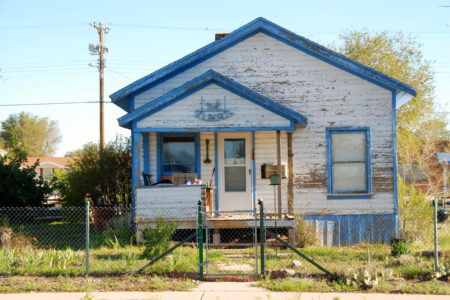
“Fothergill and Peek suggest that officials develop policies that foster increased safety of all housing, including low-income housing, without making housing unaffordable for low-income people. They note that this could involve requiring landlords to fund improvements, or providing them with subsidies or other support for doing so,” according to a report by the Substance Abuse and Mental Health Services Administration.
Response and recovery efforts must also be tailored to the needs of populations most affected by natural disasters.
For instance, policies that ensure access to transportation during natural disasters could help Latinos and other vulnerable populations comply with evacuation orders. Specifically, cities should invest in more public transportation, such as bus and light rail systems, according to a report by the Substance Abuse and Mental Health Services Administration.
You can help support more equitable Latino communities, too.
Select your county and get a Health Equity Report Card by Salud America! at UT Health San Antonio.
In your report card, you will see maps, data, and gauges to compare health equity issues, including poverty rates and housing and transportation access to the rest of your state and nation.
You can email your Health Equity Report Card to local leaders to stimulate community change. Use the data in your materials or share on social media to raise awareness of how Latinos are affected by hurricanes, and what we can do to help.
Get your Health Equity Report Card!
Explore More:
HousingBy The Numbers
56.9
percent
of Latinos are "housing cost burdened"

